Homemade Cleaners – Cleaning Products
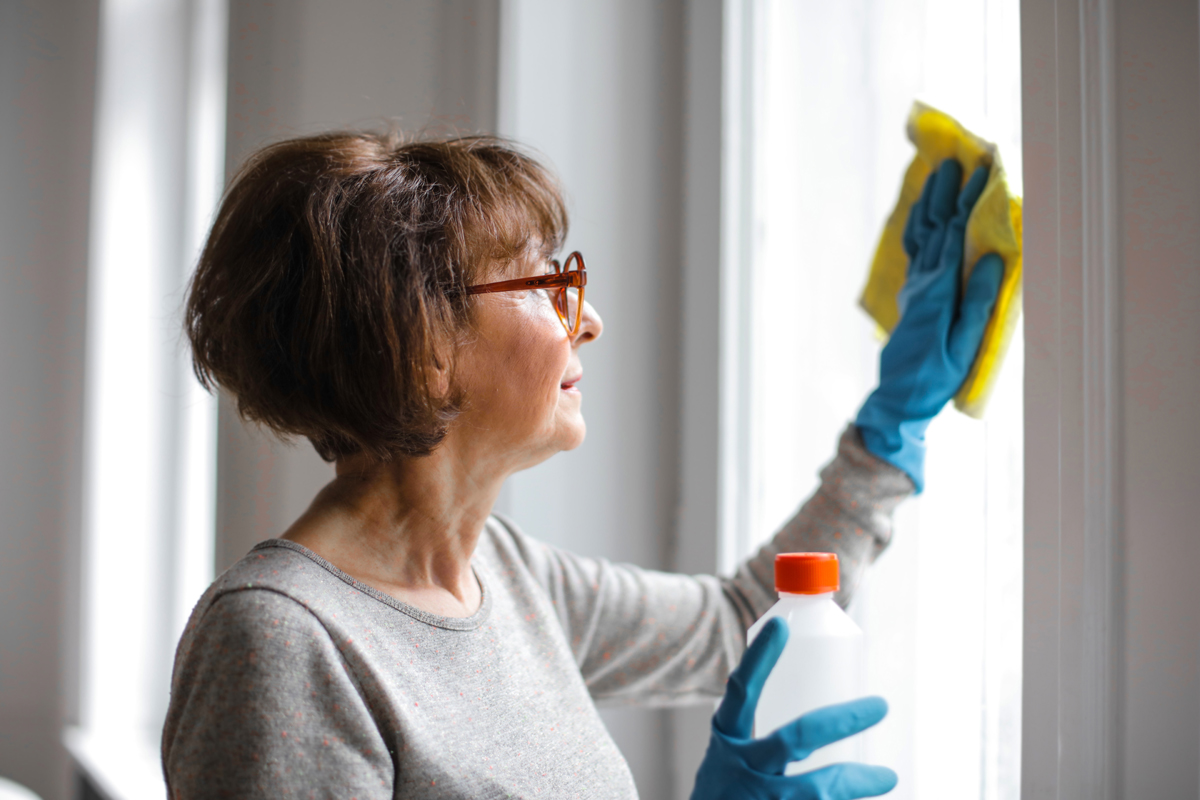
How to make your own homemade cleaning products.
Candles, Telephones
Sponge with a piece of cotton dipped in rubbing alcohol.
Carpet Freshener
Combine 3/4 cup baking soda, 2 tbsp corn starch, and 1/4 cup perfumed talcum powder. Sprinkle on dry carpet, let stand 5 to 15 minutes, then vacuum.
Cobwebs
For hard to reach spots, slip a sock over the end of a yardstick and secure with a rubber band, then sweep the area. This method works well for cleaning under radiators and refrigerators also.
Pet Urine
Dab area with toweling, wash with suds of liquid dish detergent, and rinse with 1/2 cup vinegar diluted in 1 qt warm water. Lay towels or paper towels over the spot and weight down to absorb excess moisture. Let stand 4 to 6 hours, then remove toweling, brush up nap and allow to dry completely. To speed drying, use an electric fan.
Ovens
Fill a small glass bowl with 1/2 cup full-strength ammonia, place in oven and close. Let stand overnight, then wipe loosened dirt with paper towels or newspapers. If necessary, rub surfaces with a suitable abrasive, such as fine steel wool, then wash with warm soapy water and rinse. Repeat process if necessary.
Homemade Window Glass Cleaner
1/2 cup vinegar to 1 gallon of water (or 2 tablespoons per quart) OR
1/2 cup sudsy ammonia to 1 gallon water (or 2 tablespoons per quart)
OR
1/2 cup sudsy ammonia 2 cups rubbing alcohol 1 teaspoon liquid dishwashing detergent 1 gallon water (This one is less likely to freeze in cold weather.)
Pots and Pans – Burned, and Crusted,on Foods
Soak or boil a solution of 2 tbsp baking soda per qt of water in each pan. Let stand until particles are loosened, then wash as usual. Use a mild or moderate abrasive if necessary.
Discolored Aluminum
Heat a solution of 1 tbsp vinegar per qt of water or 2 tsp cream of tartar per qt of water in each pan until discoloration disappears.
Grease
Rub greasy spots with a mild or moderate abrasive, such as fine steel wool, and a dish detergent until they disappear.
Stained No-Stick Cookware
To remove stains from no-stick surfaces, pour a solution of 1 cup water, 2 tbsp baking soda and 1/2 cup chlorine bleach into the pan and simmer 5 to 10 minutes. Do not allow mixture to boil or to boil over the side of the pan. Wash in hot soapy water, rinse and dry. Apply a light coating of cooking oil. (Note: This formula may fade dark-colored surfaces.)
Drains
To keep drains clear, flush daily with scalding water. For grease buildup, dissolve 1 lb washing soda in 3 gal boiling water and pour down drain. To avoid burns from boiling water, hold water container close to drain and pour slowly and directly into drain. For heavy grease buildup, use a commercial drain opener. Exercise extreme caution when using and follow label instructions exactly. (Commercial drain openers can be used to clear hair buildup from bathroom drains, also.)
Disinfectant/Mildew Remover
Dilute 3/4 cup chlorine bleach in 1 gal of water. Apply to tile and grout and scrub; wipe shower stall and curtain; rinse thoroughly.
Fixtures
To clean stainless steel, chrome, fiberglass, ceramic, porcelain or enamel fixtures, dissolve 2 tbsp baking soda in 1 qt of water.
Rust Stain and Hard Water Deposit Remover
Apply full-strength vinegar or lemon juice and let stand until spot disappears, then rinse. Repeat if necessary.
Soap Scum
Apply baking soda dry or as a thick paste, rub vigorously with a wet sponge, then rinse.
Toilet Bowl
Pour 1/4 cup full strength chlorine bleach OR 1/2 cup full strength ammonia into bowl. DO NOT USE BOTH. Swish with a bowl brush and flush.
Combs and Brushes
Fill a basin with hot water, and add either 2 tbsp ammonia OR 1 tsp liquid dish detergent. Drop in combs and brushes and soak 10 minutes, then use combs to clean brushes. Rinse thoroughly and air dry.
The Author:
Anne Field, Extension Specialist, with credit to MSU Extension.

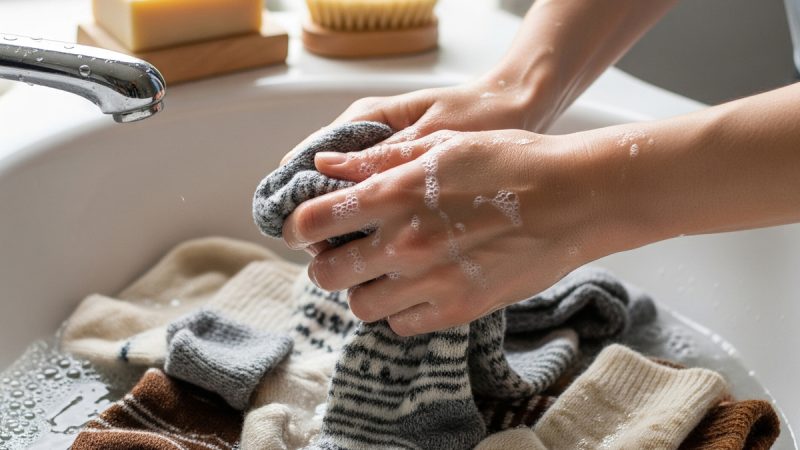
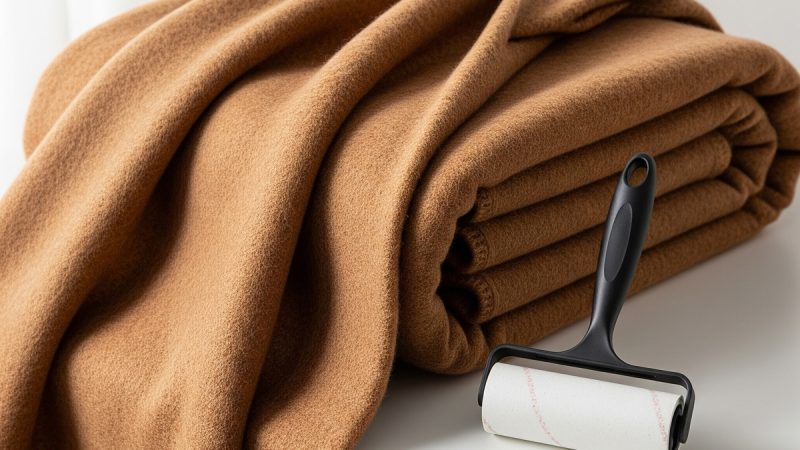
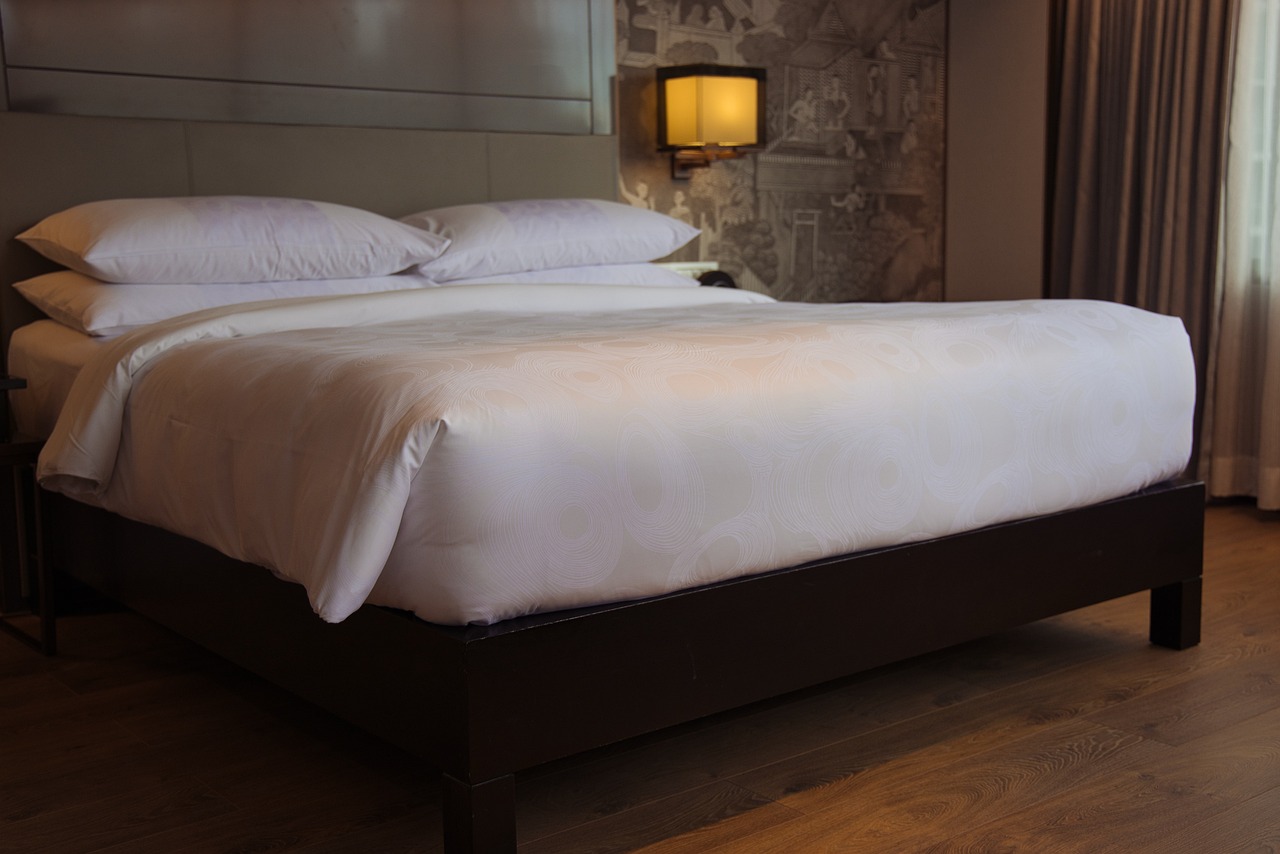
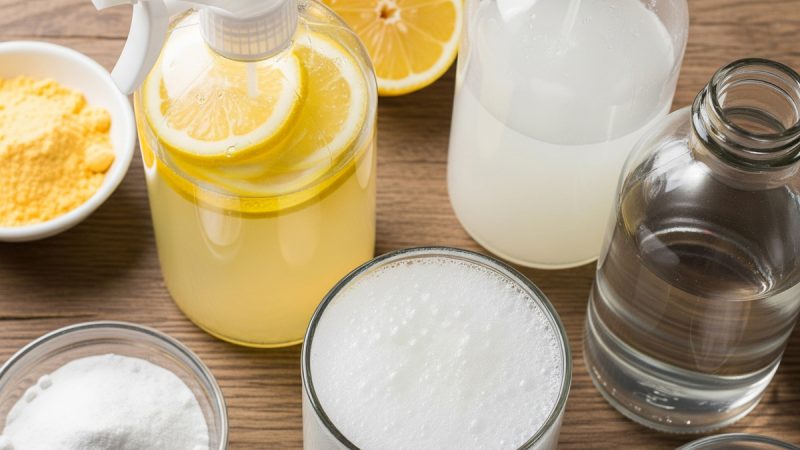
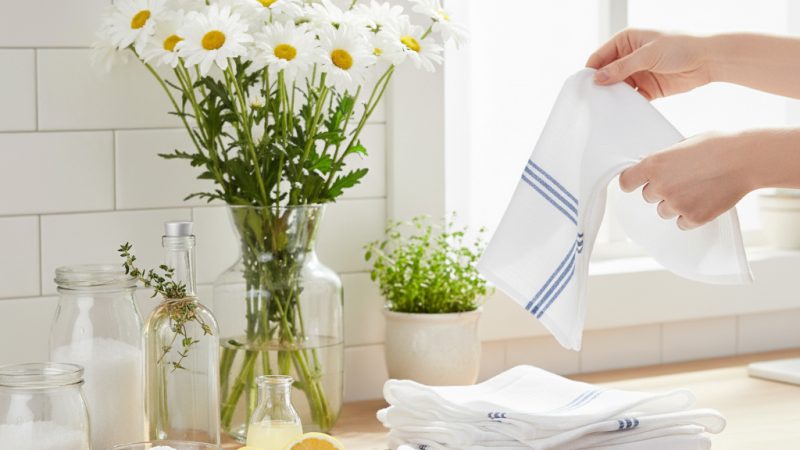
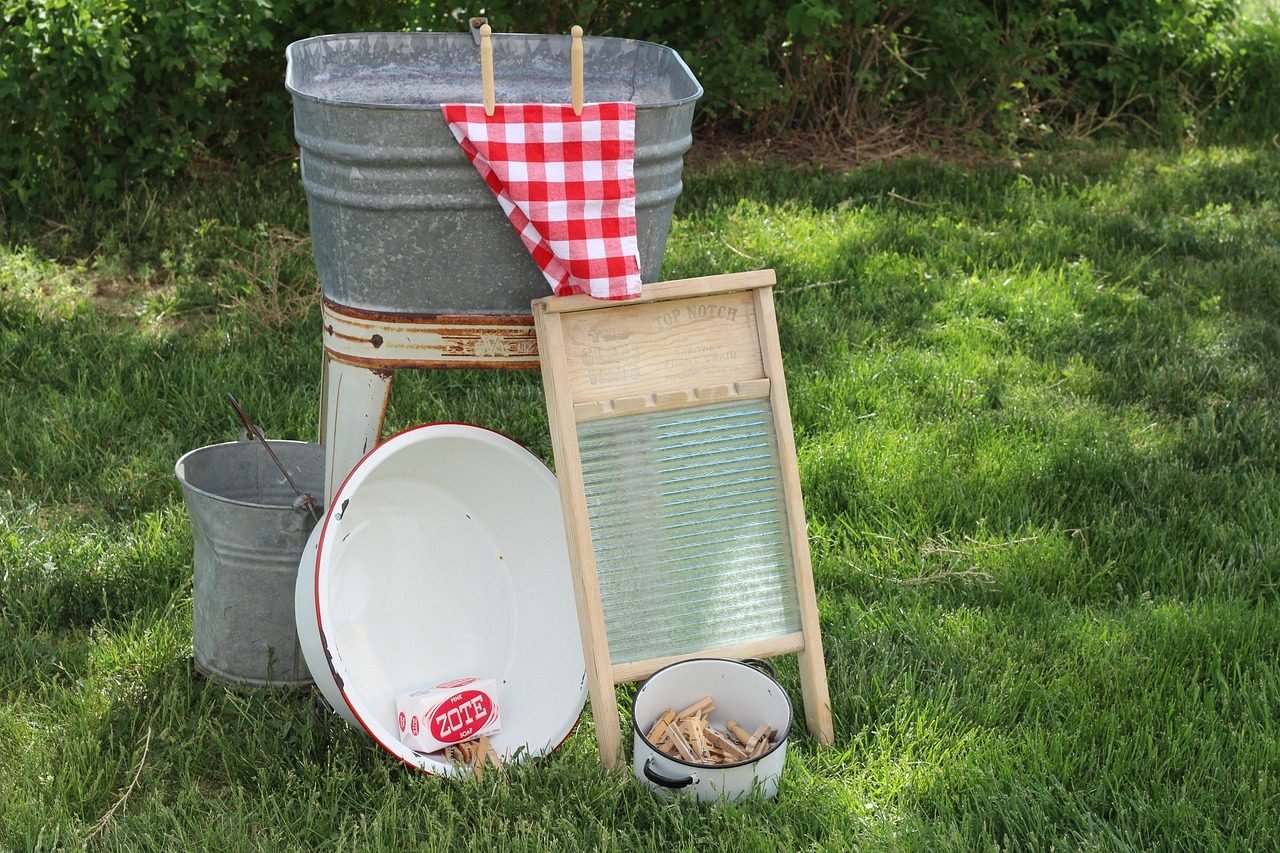
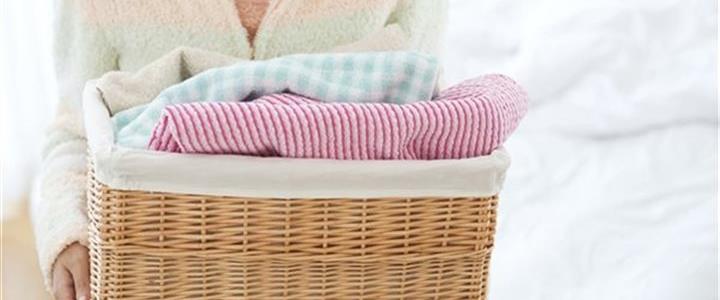
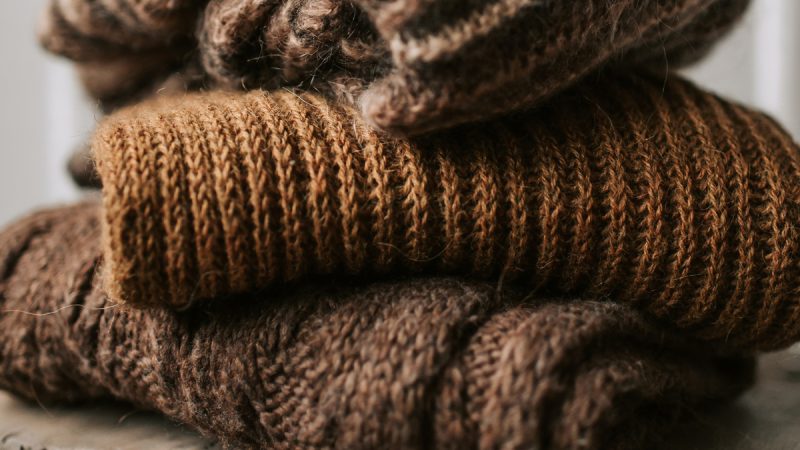
If you do a lot of cleaning as I do and use a lot of soaps, detergents etc. When rinsing sinks tubs or whatever, a small amount of distilled vinegar in a bucket of warm water or a spray bottle, cuts rinsing time in more than half. Plus it saves a great deal on water consumption.
That’s a great tip! I never thought about using distilled vinegar to cut down rinsing time and save on water consumption. I’ll definitely try that out next time I clean. Thanks for sharing!
White Uniforms
Your published tip for whitening teeth was interesting and reminded me of a whitening tip of my own. But not for teeth! As a beauty and holistic therapist I discovered (quite by accident) a useful method of keeping my all-white uniform sparkling. This is a useful tip for any person who wears white a lot (painter/decorators, chefs, nursery nurses etc….) Use slightly less than your usual detergent and add a nappy sanitizing powder (or diaper sanitizing powder, depending on which side of the Atlantic you live!!) About two rounded desert spoonfuls is adequate for washing by hand in the sink or a small half load in the washing machine. the amount can be doubled if washing a full load in the machine. In Britain, this product markets under proprietary names like “Napisan” or “Nappi-wite” and these days admittedly is not always easy to get hold of since disposable nappies/diapers are far more widely used. However, I find that it’s worth looking out for and many large chemist and drugstore chains make it under their own label, too. A similar result can be achieved by adding a net curtain whitener but this works out a little more expensive.
I recently found that my local supermarket were selling off several boxes of this substance cheaply since there was not a lot of call for it in current times and it was old stock. Delighted to find a bargain I bought a large amount which will last me a considerable time.
Wow, I never would have thought of using a nappy sanitizing powder to keep white uniforms sparkling. It’s interesting how different products can have multiple uses. I’ll have to keep an eye out for some of those products or try the net curtain whitener. Thank you for the tip!
Fog Free Mirrors – Apply regular old shaving cream to your mirror in small amounts in a thin layer and wipe clean with a clean rag. Not only does it keep your bathroom mirrors clean they also do not fog over. My husband loves this idea.
I’ve heard of using shaving cream to keep mirrors clean, but I didn’t know it prevents fogging too. That’s a clever idea! I’ll have to give it a try and see if it works for me. Thanks for sharing!
To quiet squeaky doors, spray the hinges with WD-40
WD-40 is such a handy product! I’ve used it for squeaky doors before, but it’s good to be reminded of its effectiveness. Thanks for the reminder!
I place several sheets of newspaper under my car mat to soak up water from melted snow in the winter. Remember to remove before it freezes to the carpet.
That’s a great tip for preventing water damage in the car during the winter. I never thought about using newspaper to soak up melted snow. I’ll definitely keep that in mind for the next time it snows. Thanks for the suggestion!
The best thing I have found to clean my computer or telephone or any other device is plain old vinegar. Dip a cotton swab in a bowl of vinegar and clean all surfaces. For larger areas use a cotton ball. This is even better than alcohol.
I never realized vinegar could be so versatile when it comes to cleaning electronic devices. I’ve always used alcohol, but I’ll definitely give vinegar a try next time. It’s great to have a more natural alternative. Thanks for the tip!
One of the easiest ways to remove rust from any metal surface, is Coke (the cola), just dab some onto a clean soft cloth and rub the area, presto! It is gone in a matter of minutes.
That’s an interesting tip! I never knew that Coke could remove rust. I’ll definitely give it a try next time I come across rust on metal surfaces.
Tar on Carpet – Spray WD-40 on it and brush. It works wonders.
I never thought of using WD-40 to remove tar from carpet. It’s great to have a solution for those annoying stains. Thanks for sharing!
Clean Iron – Toothpaste not only helps us keep our teeth clean but also to keep our iron box clean.
Steps:
1) Use a old tooth brush
2) Rub the iron part with water
3) Apply little quantity of Colgate toothpaste or any other toothpaste.
4) And brush it until the dirt or sticky colour disappears.
5) Then take a clean piece of cotton, dip it in the water and wipe it.
This helps us to remove all dirt and sticky things from our iron box.
Wow, I never realized toothpaste could be used to clean an iron. I’ll definitely give this a go next time my iron needs a touch-up. Thanks for the step-by-step instructions!
I really like the Pet Urine remover recipe. Thanks for sharing your DIY cleaning ideas. Thanks!
I’m glad you found the pet urine remover recipe helpful! DIY cleaning ideas are always a great way to save money and keep our homes clean. You’re welcome!
Oh My GOD! I am so happy I found this article. This is so helpful! Especially the Pet Urine part!!! I like it a lot. Thanks for the help!
It’s always a great feeling to stumble upon a helpful article, especially when it addresses a specific issue like pet urine. I’m glad you found the information useful. You’re welcome!
I recently discovered that cream of tartar and white vinegar removes not only rust stains, but it removed rust spots off my burner pans. It also cleaned my greasy and grimy burner pans. COT has been added to my natural cleaning routine.
Cream of tartar and white vinegar sounds like a powerful combination for removing rust stains and cleaning burner pans. I’ll have to try this out and add it to my natural cleaning routine too. Thanks for the suggestion!